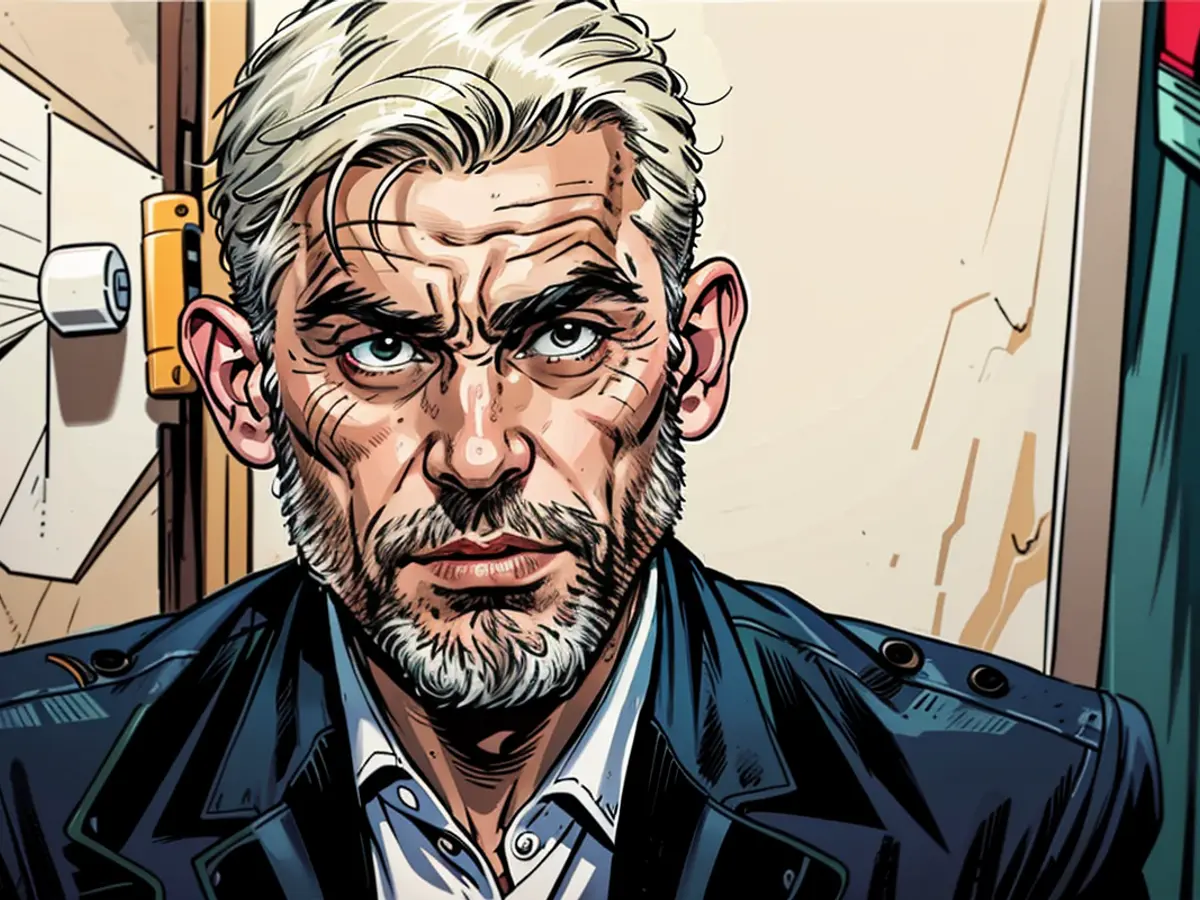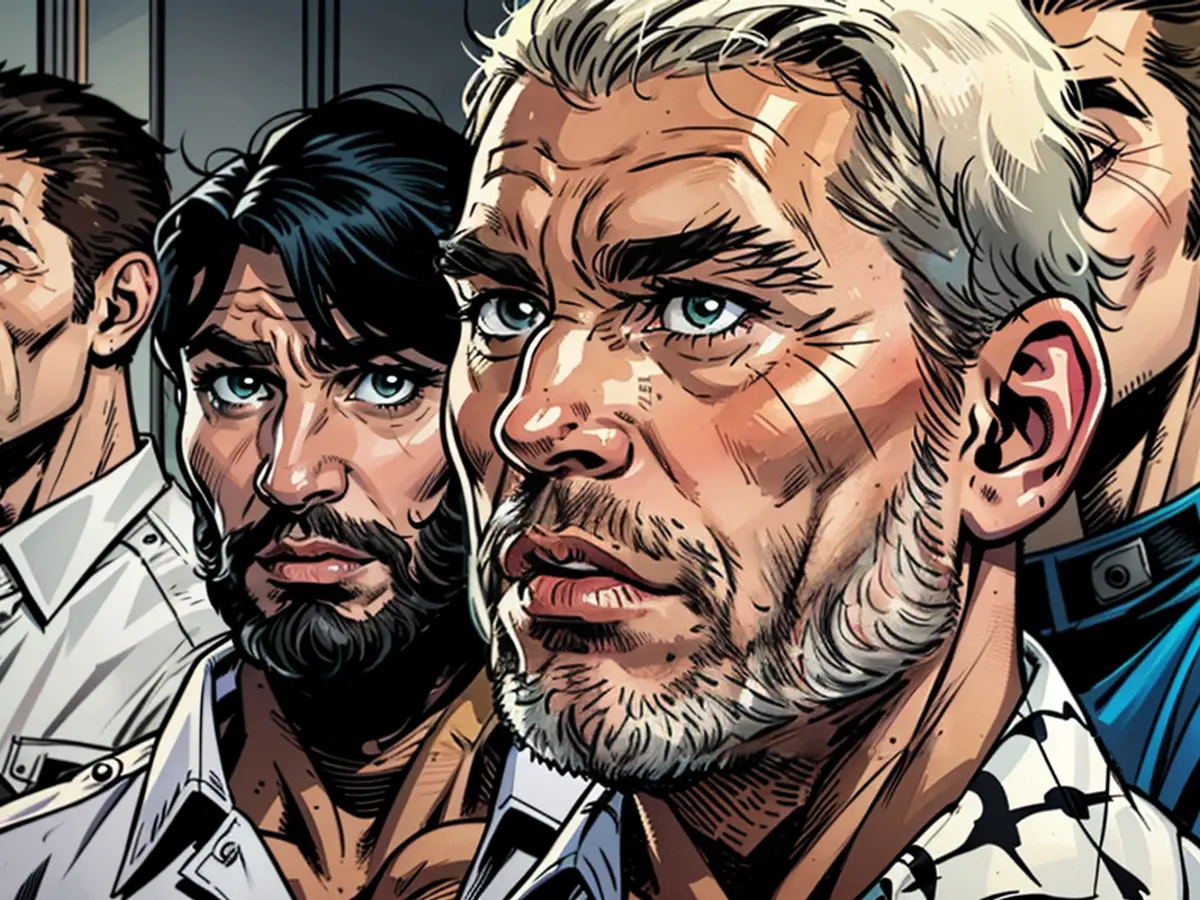The demise of Sinwar potentially signifies the conclusion of the Gaza conflict, provided Israel capitalizes on the opportunity.
The death of Hamas leader Yahya Sinwar in Gaza is a significant victory for Israel after a year-long pursuit of the individual believed to have orchestrated the deadliest terrorist attack in the country's history.
This event might push the ongoing conflict in Gaza towards resolution, according to experts, provided Israel and its allies can seize the opportunity.
Harel Chorev, a senior researcher at the Moshe Dayan Center at Tel Aviv University, explained to CNN that Sinwar's demise could seriously harm Hamas due to how he managed the organization.
Before the war, power within Hamas was spread out, with Sinwar being one of several leaders. However, his authority increased over the past year, becoming the primary decision-maker as Israel eliminated more vital figures, such as Hamas' military chief, Mohammed Deif.
The prolonged devastation caused by Israel's attacks—which has left a significant portion of Gaza in ruins and exacted a heavy toll on civilians—has greatly weakened Hamas, and Sinwar's death will leave a significant power vacuum, which Israel and its allies will likely capitalize on.
It is uncertain if Sinwar left any guidance on how to proceed in the event of his death. Several potential successors have been proposed, including Sinwar's brother Mohammed and Khalil Al Hayya, Hamas' chief negotiator during ceasefire talks in Cairo. Neither candidate has the same public profile or influence as Sinwar within Gaza.
Chorev emphasized the need for Israel to capitalize on this situation and the confusion likely spreading throughout Hamas' ranks.
Netanyahu's "political calculations"
Netanyahu has maintained that his goal is to eradicate Hamas entirely, although many experts have questioned the attainability of such a goal.
Despite Hamas being significantly weakened, it remains capable of launching rockets toward Israel. The Israeli military has recently re-entered northern Gaza, citing Hamas' revival in the area.
Shira Efron, a senior director of policy research at the Diane and Guilford Glazer Foundation, claimed Sinwar's killing provides Netanyahu with an opportunity to claim victory.
“They can now say ‘OK, we have won the war, we can wind down the war in Gaza and move towards a different reality on the ground,” she said.
However, Netanyahu might instead use Sinwar's death as a justification for intensifying the conflict, Efron argued.
“This all has to do with Netanyahu's political calculations and his coalition,” she said.
Sinwar's death could open the door for a hostage and ceasefire agreement, as he was believed to have been an obstacle to such an agreement.
Sinwar had little incentive to negotiate as he was Israel's top target, according to Chorev.
Some hostage families have encouraged Netanyahu to pursue a deal, with Einav Zangauker, whose son Matan is still in Gaza, saying: “If Netanyahu does not take advantage of the momentum and does not stand up now and present a new Israeli initiative, even at the cost of ending the war, it means that he has decided to abandon my Matan and the other hostages, with the aim of prolonging the war and fortifying his rule.”
Uzi Rabi, also from Tel Aviv University, stated that the hostages should now be the top priority.
“Israel must do its utmost to get them back,” he said. “Without Sinwar, it might be little bit easier.”
What comes next?
The next steps will largely depend on Netanyahu.
The Israeli prime minister has been attempting to balance the demands of his far-right coalition partners with international pressure to strike a ceasefire agreement and limit the devastating impact of the war on Gaza's civilians.
At the same time, he is facing criminal investigations and large-scale protests calling for his resignation at home.
Critics of Netanyahu, including US president Joe Biden, have criticized him for potentially prolonging the conflict in an effort to maintain power, a charge the Israeli leader has denied.
Netanyahu staged a remarkable recovery over the past year, regaining support lost over the years.
In the past, he has insisted on maintaining a military presence in Gaza after the immediate conflict concludes. Some coalition partners have advocated for Israeli settlements within Gaza.
Rabi believes that a level of Israeli military presence will be necessary to prevent Hamas from rebuilding itself in the strip.
“You need to take control of the civilian infrastructure in order to strip Hamas of its authority and legitimacy in the eyes of the Gazans,” he said.
“We should work with the Emiratis, with the Saudis, with the Americans, and with Palestinians other than Hamas to determine the way forward,” he suggested. “Perhaps this could be the beginning of a different future for Palestinians and the Middle East.”
Defense Minister Yoav Gallant has previous criticized Netanyahu's plan to maintain Israeli military control in Gaza, warning of a significant cost.
Efron emphasized that Netanyahu has already gained a boost from Israel's successful operation targeting Hezbollah's leadership, and the death of Sinwar will give him another boost—and a sense of validation.
"She mentioned that everyone globally advised Netanyahu against entering Rafah, and Sinwar was reportedly killed in Rafah during this time, with over 1.2 million people seeking shelter there. This likely gave Netanyahu the ammunition to defend his choices after Israel launched its attack on Gaza's southernmost city," she expressed.
Efron believed that while Netanyahu might not have been present in Rafah when the operation began, this fact could help him justify his decisions later on.
Chorev, from Tel Aviv University, suggested that Netanyahu could view Sinwar's death as an opportunity to strengthen his legacy.
Many Israelis claimed responsibility for the October 7 attack, and Netanyahu was also the one who granted Sinwar freedom from an Israeli prison in a 2011 prisoner swap. This decision became a source of contention for him.
According to Chorev, Netanyahu sought to be remembered as the one who not only initiated October 7 but also emerged victorious from it. "I think he considers this a significant achievement. And if he plays his cards right, he may choose to leave office afterward," Chorev opined.
Although Sinwar's death arguably weakened Hamas, completely destroying the militant group does not automatically guarantee a peaceful future for Israel.
The intense bombardment and brutal ground operation conducted by Israel over the past year have left Gaza in ruins. Thousands of children have been left orphaned, injured, and traumatized.
If Israel hopes to foster a better future, it must ensure that these children are not susceptible to further radicalization.
This victory in Gaza might lead to reduced tensions in the Middleeast, given that Israel and its allies can leverage the opportunity for peace.
The power vacuum left by Sinwar's death in Hamas could potentially be exploited by Israel to negotiate a ceasefire agreement, as Sinwar was seen as an obstacle to such agreements.

![Yahya Sinwar leads a gathering with prominent figures from Palestinian groups at his workspace in Gaza City, dated April 13, 2022. (AP) Yahya Sinwar oversees a gathering of Palestinian faction chieftains in his office situated in Gaza City, on April 13, 2022 (AP) [Paraphrased]](https://cdn.aussiedlerbote.de/content/images/2024/10/18/514338/jpeg/4-3/1200/75/file-yahya-sinwar-chairs-a-meeting-with-leaders-of-palestinian-factions-at-his-office-in-gaza-city-april-13-2022-ap.webp)







